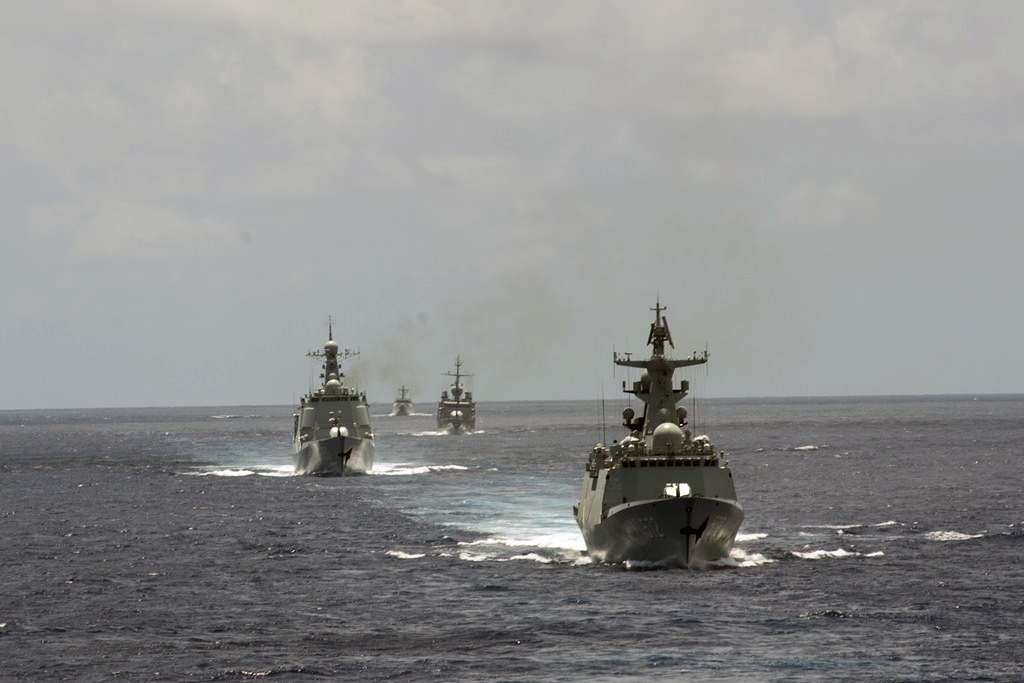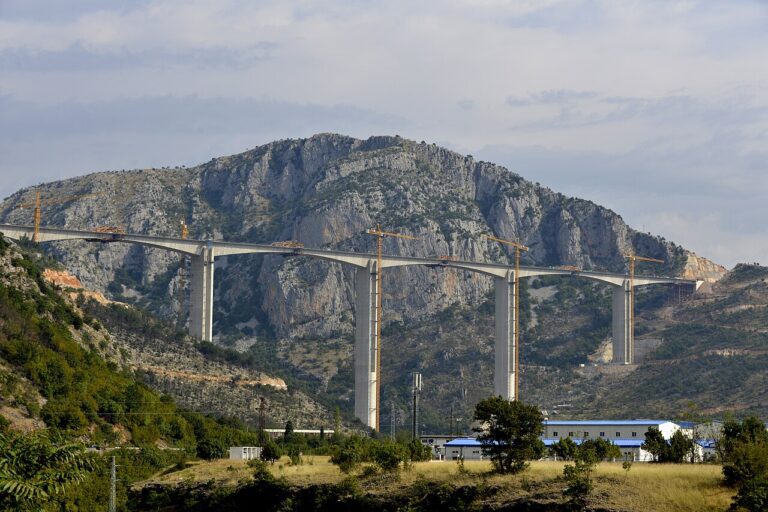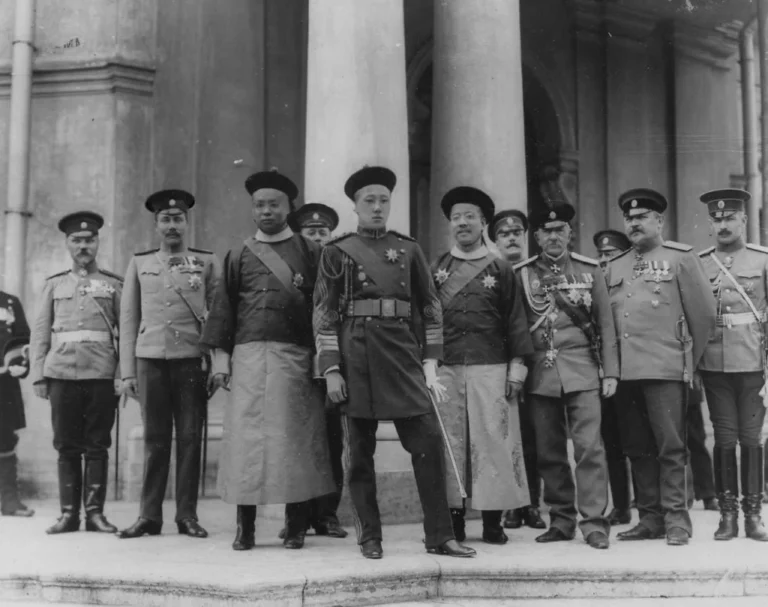
For the first time ever, the foreign ministers of the EU-27 will meet 30 of their Indo-Pacific counterparts at a high-level forum in Paris on February 22. This “27+30” event is likely to focus on security and defense challenges in the Indo-Pacific, digital issues and connectivity, as well as other global issues of common interest.
For France, the meeting will be the highlight of its efforts to advance the Union’s role as a geopolitical actor, with particular emphasis on the Indo-Pacific, while it holds the rotating presidency of the Council of the EU. As one of the few EU member states with a permanent presence in the Indo-Pacific, Paris has a keen interest in the EU being able and willing to defend its own interests – and security – in the region. The guest list for this forum indicates that Paris is particularly keen on advancing the “cooperation with partners” part of the strategy. Traditional partners like Japan, South Korea, and India have reportedly been invited, alongside a number of South Pacific island nations. Even Australia has made the list, despite the AUKUS saga.
However, Chinese Foreign Minister Wang Yi and US Secretary of State Antony Blinken, rather conspicuously, have been omitted from the guest list.
As one of the main proponents of greater European “strategic autonomy,” Paris seems to be sending twin messages to both superpowers. First, it intends to use its Council Presidency to push for progress on the implementation of the EU’s Indo-Pacific Strategy, also in security and geopolitical terms, and independently of the US. Second, although a central piece of the EU’s strategy is inclusivity and cooperation, China remains one of the main challenges to European interests and to the rules-based international order.
The upcoming summit is, of course, evidence of the EU’s increased interest in the Indo-Pacific. Yet, it does not come entirely out of nowhere.
In the last year, “Indo-Pacific” has become one of the new European buzzwords. After France, Germany and the Netherlands released their own strategies for the region between 2018 and 2020, swiftly followed by that of the EU in September 2021, several other countries across Europe are now either planning or actively working to develop their own plans. This includes countries like Poland or Italy that lack a substantial presence in the region, or the Czech Republic, which does not even have a navy to speak of.
The Growing Role of Security
The focus of many of these strategies, of Germany and the EU in particular, remains squarely on cooperative approaches to the region, and joint economic development is a core aspect.
Indeed, there are good reasons for the EU and its member states to dedicate time and resources to a policy agenda focused on sustainability, green transition, governance, and inclusive prosperity. This is, after all, one of the EU’s core strengths in the region, as a top investor, trade partner, and provider of development assistance. The Indo-Pacific’s centrality as a global trade and manufacturing hub also lends itself to an increased EU role on development issues.
Security issues, however, are increasingly coming to the forefront of European policymakers’ concerns. A number of European member states, including Germany, have sent naval missions to the Indo-Pacific in the past year, and developments in the Taiwan Strait are catalyzing debates over Europe’s role in a potential Taiwan contingency, spurred on by the current crisis in China-Lithuania relations.
This new focus on the geopolitical and security situation in the Indo-Pacific is a very recent development, but one that is likely to remain a focal point for years to come.
It is another byproduct of the Union’s growing awareness of the worsening geopolitical competition in the Indo-Pacific, and of the key importance of the region to its own interests and security, to global prosperity, and to the rules-based international order. Beijing has become more open about its ambitions in the region and globally, and more assertive in pursuing them. On its part, Washington has increasingly shifted its focus to the Indo-Pacific, militarily and diplomatically.
To be sure, none of these developments are particularly new. Still, it has taken a few years for Europe to catch onto the fact that it cannot afford to sit on the sidelines if it wants to be a relevant global actor and defend its own interests independently. Clearly, the bloc is no longer content to rely exclusively on its partnership with the US.
The Elephant in the Room
At the heart of the EU’s renewed focus on Indo-Pacific security issues is the EU’s strategic interest in maintaining stability and freedom of navigation in the region, due to the bloc’s dependence on trade routes traversing the South China Sea, among other reasons. This, of course, is an important element of the equation, but not the only one. After all, the EU has long been dependent on economic ties with the Indo-Pacific without triggering the development of wide-ranging policy initiatives.
The underlying reason – and elephant in the room – is China. The dominant narrative in EU-China relations was, for a long time, one of the economic opportunities offered by a reforming China and of hopes of systemic convergence through trade and engagement – best encapsulated by the longstanding German position of pursuing “Wandel durch Handel” or “change through trade”. But times have changed.
The fast deterioration of US-China ties since 2017-18 increased US pressure on Europe to take a tougher stance on China, putting the issue of geopolitical competition with Beijing on the bilateral agenda. The EU’s 2019 Strategic Outlook on China for the first time recognized the existence of a systemic rivalry with China. But, despite the rising tensions in East Asia, the document did not mention the Indo-Pacific as a whole at all – the region was still not seen as a priority for the bloc.
This could have well been the end of the story, were it not for China’s growing assertiveness in recent years. China’s opaque handling of the COVID-19 pandemic, its crackdowns in Hong Kong and Xinjiang, and its use of the rest of the world’s distraction with the pandemic to push its claims in the South China Sea, Taiwan, or its border dispute with India, are just some of the more obvious examples. This trend triggered a harder look across the EU at China’s “peaceful rise and responsible global power” narratives, and at the impact that Chinese activities in the Indo-Pacific were having on European interests and security, as well as the global order more broadly.
A final piece of the puzzle to consider is the unspoken grand bargain between the US and some European nations that seem to be playing out behind the scenes. As Russia once again becomes a potential military threat to Europe, some countries in Central and Eastern Europe seem keen to devote more resources to thinking about the Indo-Pacific (despite the geographical distance and lack of capacity to increase their military presence), in hopes that the US will, in exchange, remain committed to helping them tackle the Russia threat.
Even the choice to use the term “Indo-Pacific” as a concept reveals something about the dynamics at play. While the term emerged in Asia initially, it was rapidly associated in China with the US and its “anti-China” bend, which led many in Europe to refuse to adopt it out of fear of antagonizing Beijing, instead preferring to stick with the true-and-tested “Asia” or “Asia-Pacific.”
These times, however, are now long gone.
Looking Ahead
Regardless of the reasons behind it, the introduction of security and geopolitical considerations into Europe’s thinking and approaches to the Indo-Pacific is a step in the right direction. The Indo-Pacific is a crucial arena of geopolitical competition, housing some of the world’s most dangerous hotspots, from Taiwan and the South China Sea to the Korean Peninsula.
All of these regions, of course, also hold major concerns for Europe that cannot be ignored.
Tensions or instability in the region would not just have an impact on neighboring countries, but in Europe and, indeed, around the world. Trade routes and supply chains that European economies rely on may be disrupted, international law and the rules-based international order, which are fundamental interests of Europe, may weaken, and more. In a worst-case scenario, an open conflict involving China and the US would inevitably force the EU and its member states to become involved in one way or another.
The development of Indo-Pacific strategies across Europe is a reflection of a sharper awareness of these realities, and a major step in the right direction if the EU truly wants to be a relevant geopolitical actor. Call it “strategic autonomy” or simply the ability for the bloc to effectively defend its own interests and security without relying on others; this is progress.
Europe has reaffirmed its interest in the Indo-Pacific and its willingness to get more involved, and transatlantic cooperation has largely recovered after the turmoil of the Trump administration. Nonetheless, there is still a long way to go for the EU and its member states. Indo-Pacific strategies are important, but the challenge of implementation still looms large. Without a meaningful and coordinated European approach to the region, there is a risk that these guidelines will eventually be forgotten and ultimately fail.
A key task at hand will be to make progress on developing a common EU approach to relations with China in a sensitive year for Beijing.
The upcoming 20th Party Congress will keep Beijing focused on preventing instability and protecting the Party’s image and legitimacy at all costs. This means that opportunities for engagement with China will take a hit in 2022, and Beijing is likely to show more intransigence over issues it considers to be of strategic interest, including its presence and claims in the Indo-Pacific.
This year presents an opportunity for the EU to advance towards a more substantial role for itself in the Indo-Pacific, but the bloc’s political will is also going to be tested. It remains to be seen whether the EU and its member states will be able to translate words into action.
Written by
Helena Legarda
HelenaLegardaHelena Legarda is a Research Coordinator on the Foreign Relations team at MERICS, where she also leads the China Security Project. Helena holds a Master in Public Policy degree with a focus on International and Global Affairs from Harvard and a BA in Chinese Studies from the University of Oxford.


